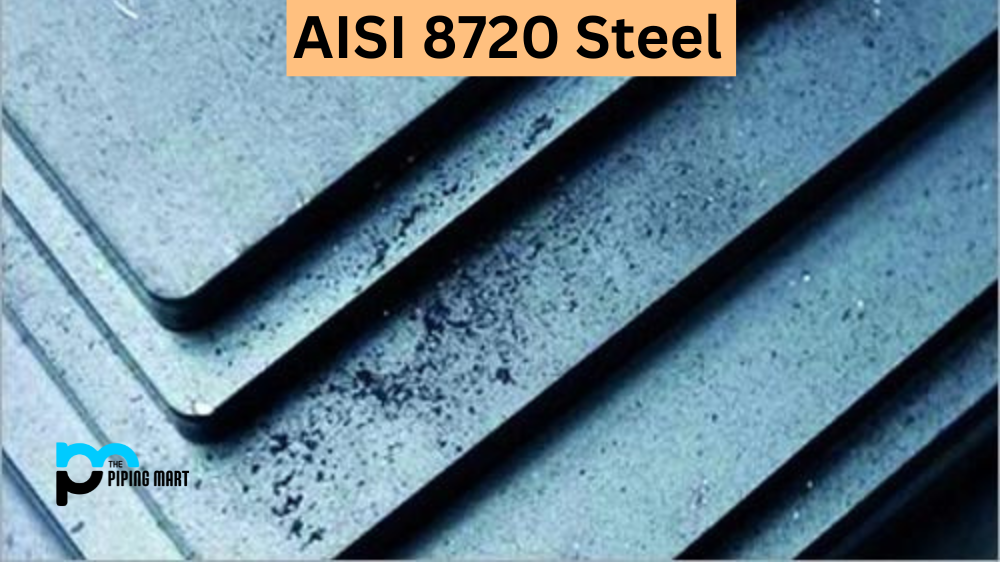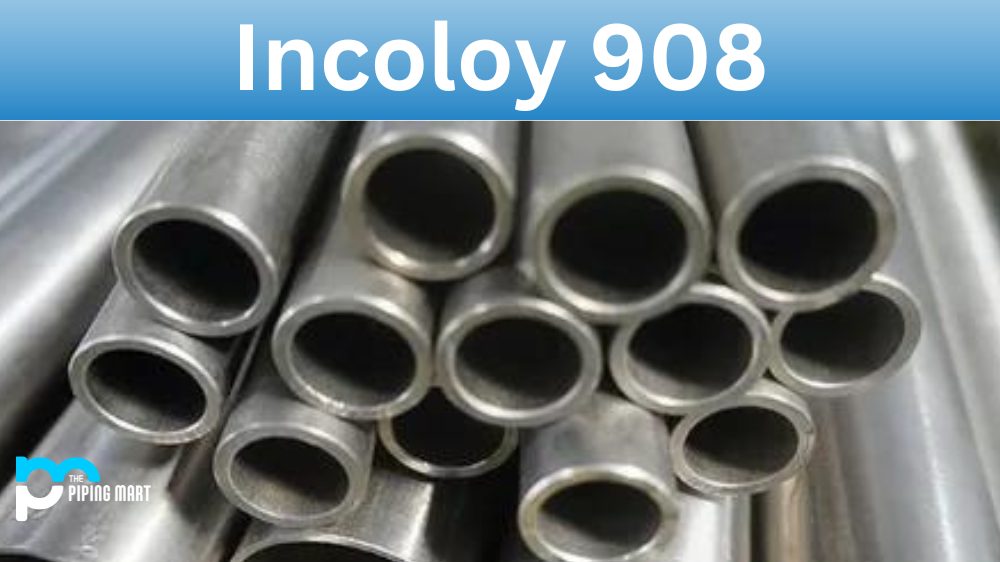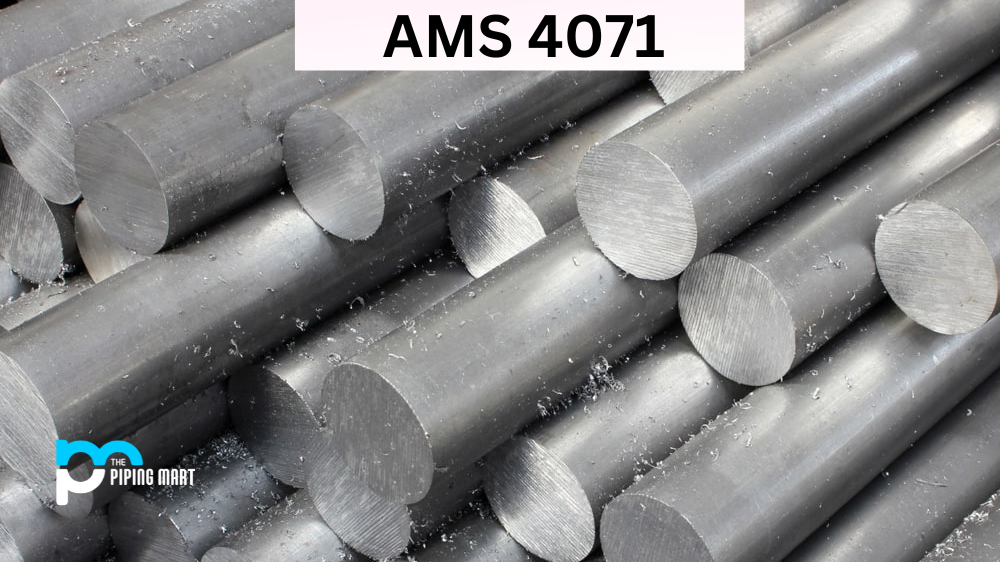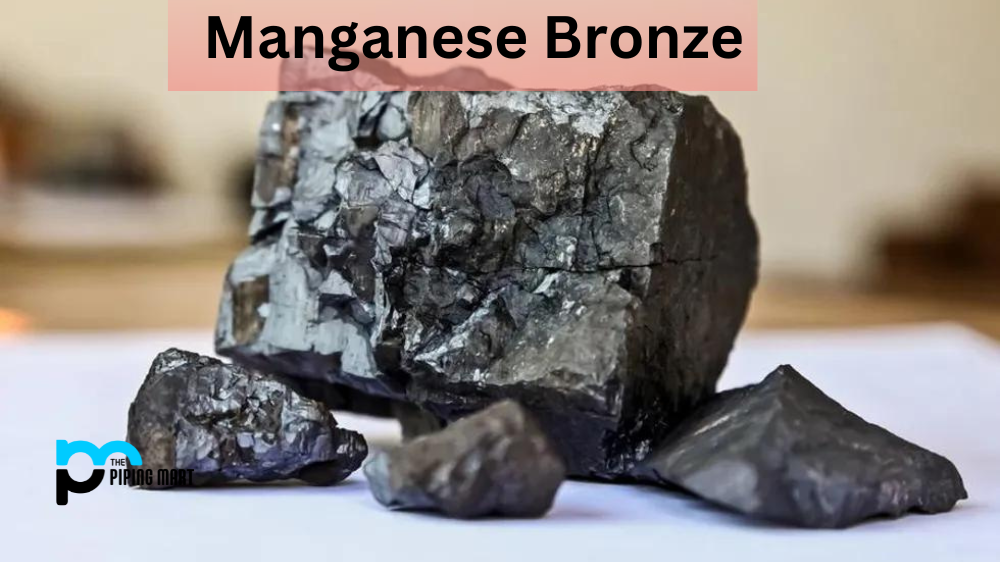AISI 8720 is a nickel-chromium-molybdenum alloy steel that has excellent hardenability and strength. UNS G87200 is used in various industrial and engineering applications, such as parts for tools, valves, gears, and shafts. This type of steel is also highly corrosion-resistant and can withstand extreme temperatures. AISI 8720 Alloy Steel, also known as SAE-AISI 8720 Steel, is a low-alloy steel with a high nickel and chromium content. This material is commonly used in applications that require toughness, high strength, and resistance to wear and corrosion. Additionally, UNS G87200 has excellent weldability and can be easily machined, making it a popular choice among manufacturers. The composition of this steel includes carbon, manganese, silicon, nickel, chromium, molybdenum, and vanadium. Its properties include excellent fatigue strength, good hardenability, and exceptional toughness at both high and low temperatures. AISI 8720 Alloy Steel is an excellent choice for parts that require high strength and toughness with excellent resistance to wear and corrosion. In this post, we’ll take a closer look at the uses, corrosion resistance, heat resistance, and machining of 8720 Alloy Steel.
What Forms of AISI 8720 is Available at Piping Mart?
- Nut
- Bar
- Bolt
- Pipe
- Screw
- Tubing
- Valves
- Washers
- Flanges
- Fasteners
- Electrodes
- Stud Bolts
- Sheet Plates
- Pipe Fittings
- Forged Fitting
- Instrumentation Fittings
AISI 8720 Composition
| Element | Content (%) |
|---|---|
| Iron, Fe | 96.895-97.97 |
| Manganese, Mn | 0.700-0.900 |
| Nickel, Ni | 0.400-0.700 |
| Chromium, Cr | 0.400-0.600 |
| Molybdenum, Mo | 0.200-0.300 |
| Carbon, C | 0.180-0.230 |
| Silicon, Si | 0.150-0.300 |
| Sulfur, S | ≤ 0.0400 |
| Phosphorous, P | ≤ 0.0350 |
AISI 8720 Physical Properties
| Properties | Metric | Imperial |
|---|---|---|
| Density | 7.85 g/cm3 | 0.284 lb/in³ |
AISI 8720 Mechanical Properties
| Properties | Metric | Imperial |
|---|---|---|
| Bulk modulus (typical for steel) | 140 GPa | 20300 ksi |
| Shear modulus (typical for steel) | 80.0 GPa | 11600 ksi |
| Elastic modulus | 190-210 GPa | 27557-30458 ksi |
| Poisson’s ratio | 0.27-0.30 | 0.27-0.30 |
| Hardness, Brinell (hot rolled and cold drawn) | 179-235 | 179-235 |
| Hardness, Knoop (converted from Brinell hardness) | 229 | 229 |
| Hardness, Rockwell B (converted from Brinell hardness) | 93 | 93 |
| Hardness, Rockwell C (converted from Brinell hardness, value below normal HRC range, for comparison only) | 15 | 15 |
| Hardness, Vickers (converted from Brinell hardness) | 217 | 217 |
| Machinability (hot rolled and cold drawn. Based on 100 machinability for AISI 1212 steel) | 65 | 65 |
AISI 8720 Thermal Properties
| Properties | Metric | Imperial |
|---|---|---|
| Thermal conductivity (typical steel) | 46.6 W/mK | 323 BTU in/hr.ft².°F |
AISI 8720 Equivalent
- ASTM A322
- ASTM A331
- ASTM A505
- ASTM A519
- SAE J404
- SAE J770
AISI 8720 Uses
AISI 8720 steel is ideal for many engineering applications due to its superior wear resistance and toughness compared to other types of steel. It is commonly used in automotive parts, machine tools, pumps and valves, aerospace components, medical implants and marine products. It is also extremely durable and can stand up to high-stress applications such as bearings, gears and shafts.
AISI 8720 Uses in Industries
Automotive Industry –
AISI 8720 steel is commonly used in the automotive industry for various components such as gears, axles, and crankshafts. Its high strength and wear resistance make it a popular choice for these critical parts that experience heavy loads and constant movement.
Aerospace Industry –
The aerospace industry also utilizes AISI 8720 steel for its high strength and toughness properties. This type of steel is often used in aircraft landing gear components, engine parts, and other critical applications that require a strong and durable material.
Oil and Gas Industry –
In the oil and gas industry, AISI 8720 steel, a large tubular component that provides weight to the drill string during drilling operations, is commonly used for drill collars. This type of steel is ideal for this application due to its high strength, corrosion resistance, and ability to withstand extreme temperatures.
Construction Industry –
AISI 8720 steel is also used in the construction industry for structural support beams, reinforcing bars, and other load-bearing components. Its high strength-to-weight ratio makes it a cost-effective option for building structures that require durability and stability.
Marine Industry –
AISI 8720 steel is commonly used for propeller shafts in the marine industry due to its high strength and corrosion resistance properties. It can withstand exposure to saltwater without corroding or weakening, making it an ideal material for this application.
AISI 8720 Corrosion Resistance
AISI 8720 steel has excellent corrosion resistance due to its chromium content which increases its ability to resist oxidation when exposed to humid environments or salt water. This type of steel also has good weldability, meaning that it can be easily welded without causing any damage or weakening the structure of the material. It also has excellent fatigue resistance, which makes it ideal for applications that require long-term performance in harsh conditions.
AISI 8720 Heat Resistance
AISI 8720 steel is highly heat resistant thanks to its molybdenum content which helps prevent oxidation when exposed to high temperatures. This makes AISI 8720 an ideal material for use in furnaces or other hot environments where it may be exposed to temperatures exceeding 1,000°F (537°C). Additionally, this type of steel also has excellent thermal conductivity, which helps dissipate heat quickly, so you don’t have to worry about it becoming too hot too quickly during operation.
AISI 8720 Machining
AISI 8720 steel is relatively easy to machine thanks to its low carbon content, which helps reduce tool wear during machining operations. When machining AISI 8720 with carbide tools, it is important to use a cutting speed that is slightly higher than what would be used with other steels, as this will help reduce tool wear while still producing good surface finishes on the workpiece. Additionally, this type of steel can be drilled with standard twist drills but should not be tapped as it could cause cracking or splitting in the material due to its hardness.
Conclusion
AISI 8720 is an incredibly versatile nickel-chromium-molybdenum alloy that offers superior strength and wears resistance compared to other steel alloys. Its outstanding corrosion resistance allows it to withstand even the harshest conditions, while its heat resistance makes it perfect for use in furnaces or hot environments where temperatures exceed 1,000°F (537°C). The low carbon content makes machining easier while still producing a good surface finish on the workpiece. With so many great qualities combined into one alloy grade, AISI 8720 is sure to meet all your needs no matter what application you are using it for!

Abhishek is a seasoned blogger and industry expert, sharing his insights and knowledge on various topics. With his research, Abhishek offers valuable insights and tips for professionals and enthusiasts. Follow him for expert advice on the latest trends and developments in the metal industry.




